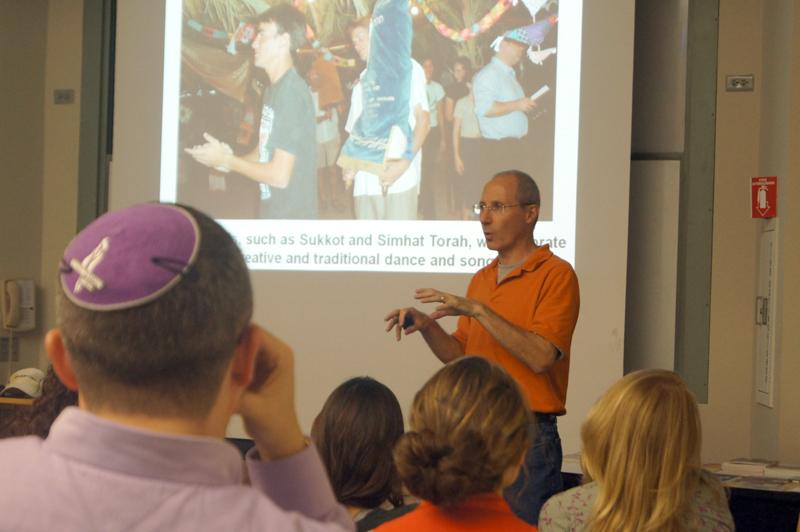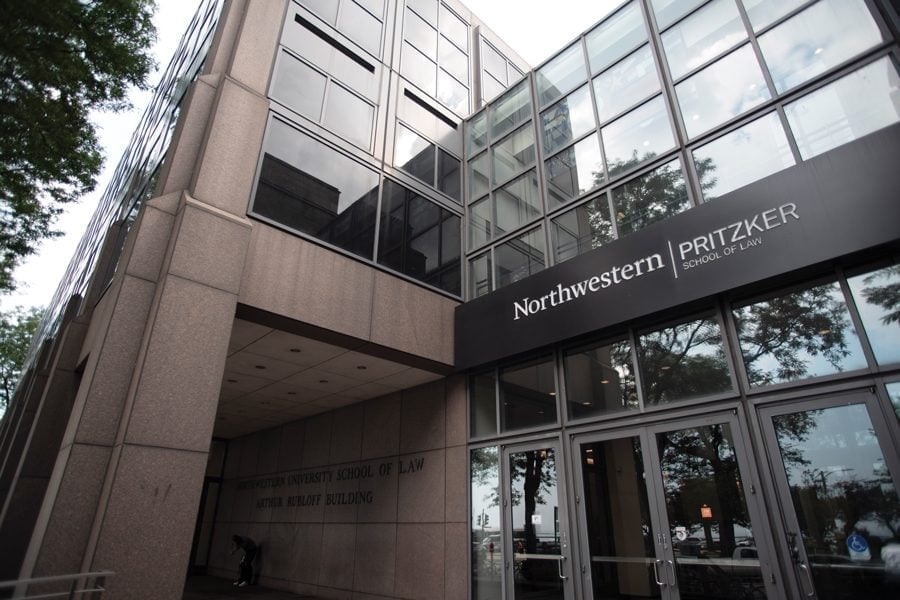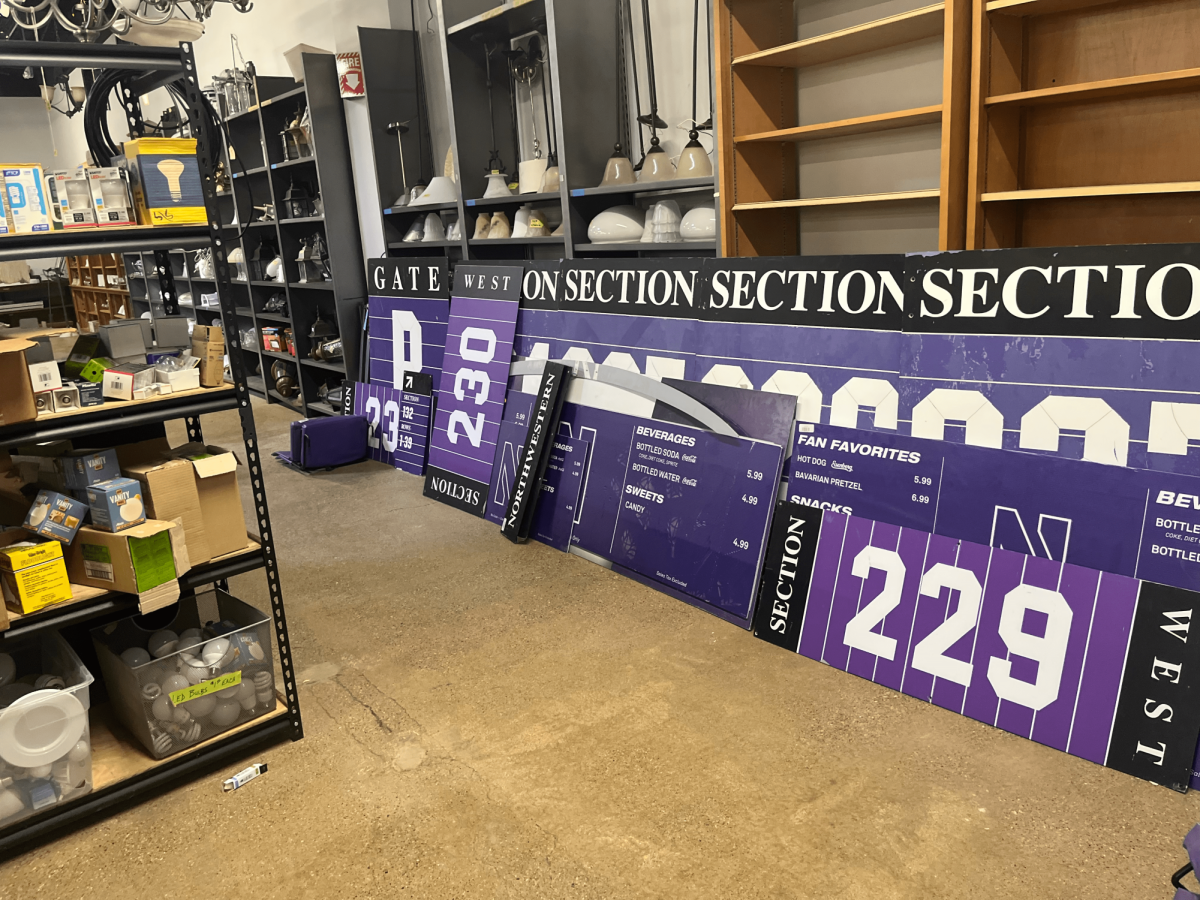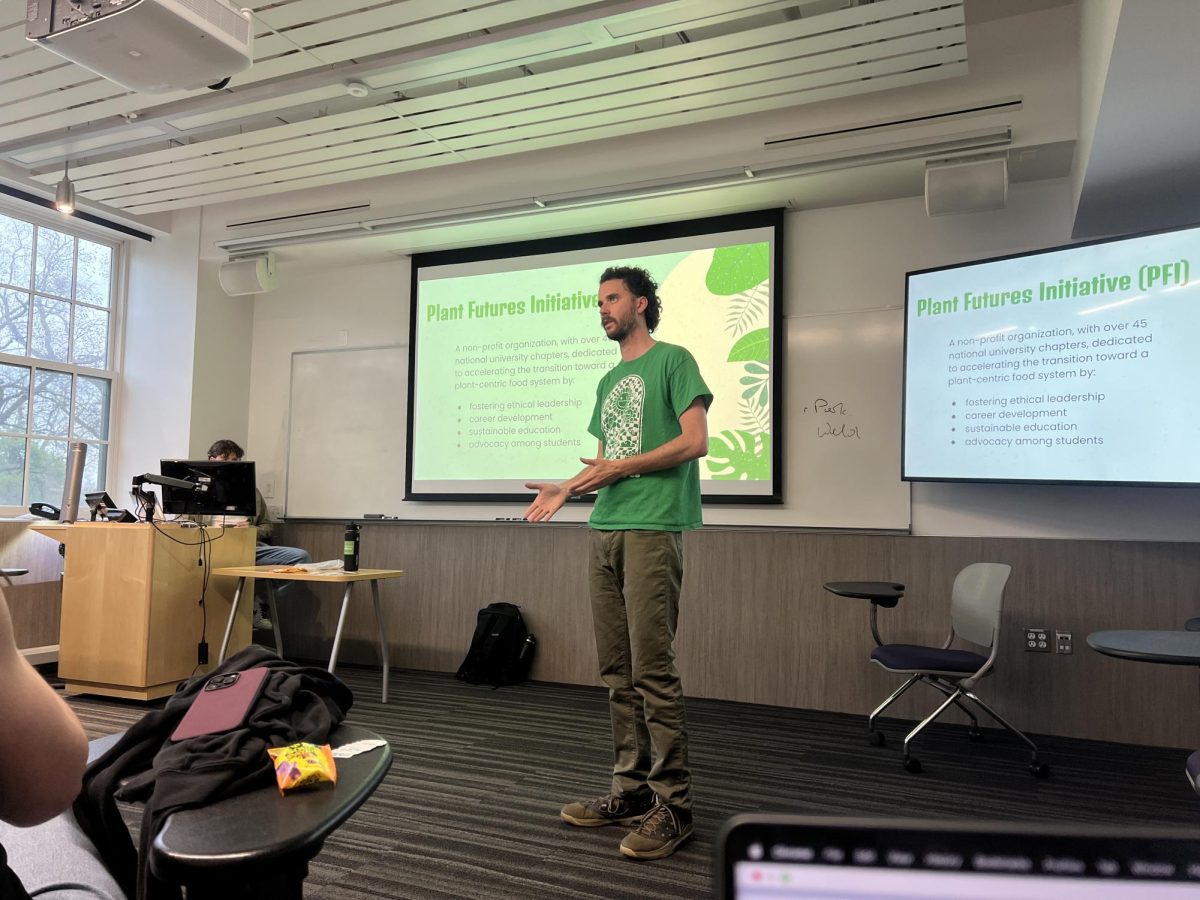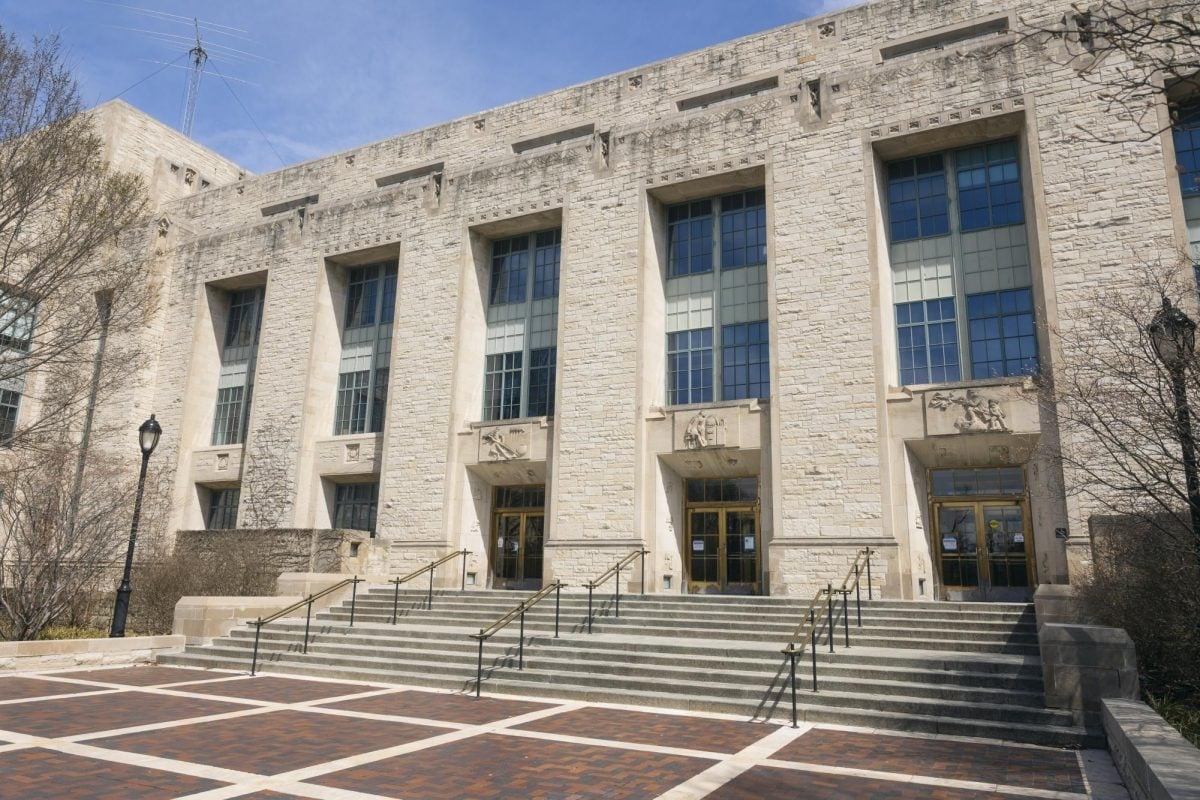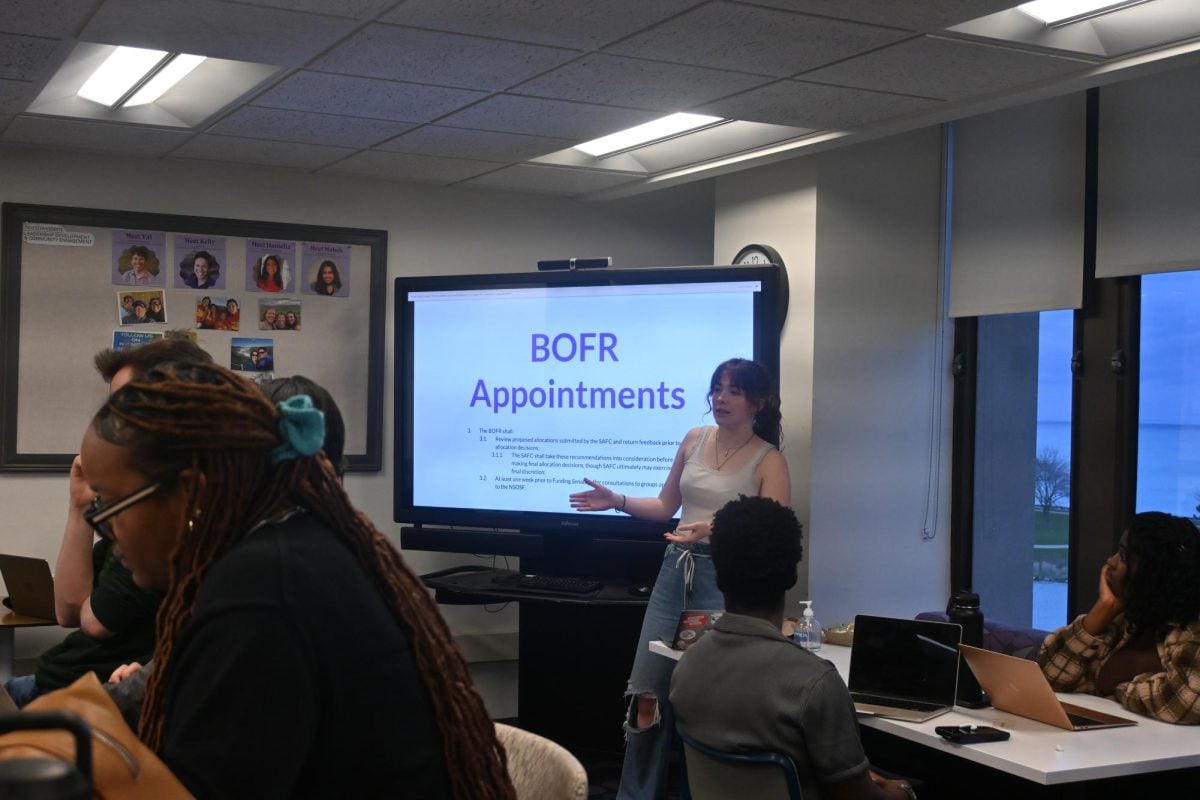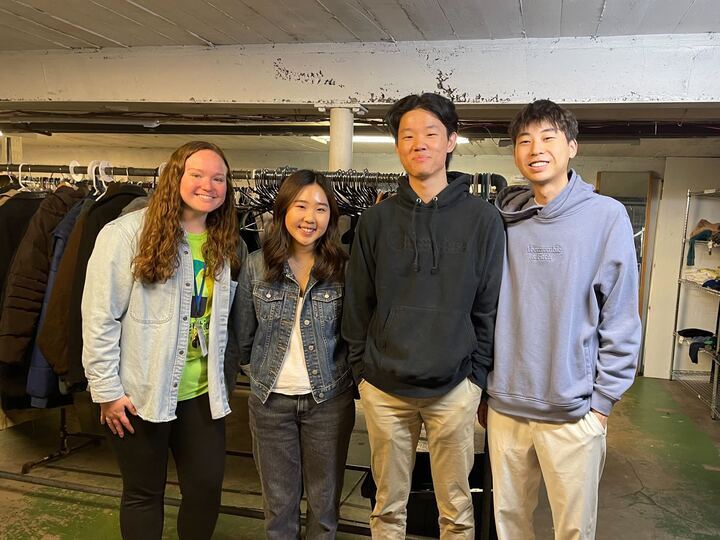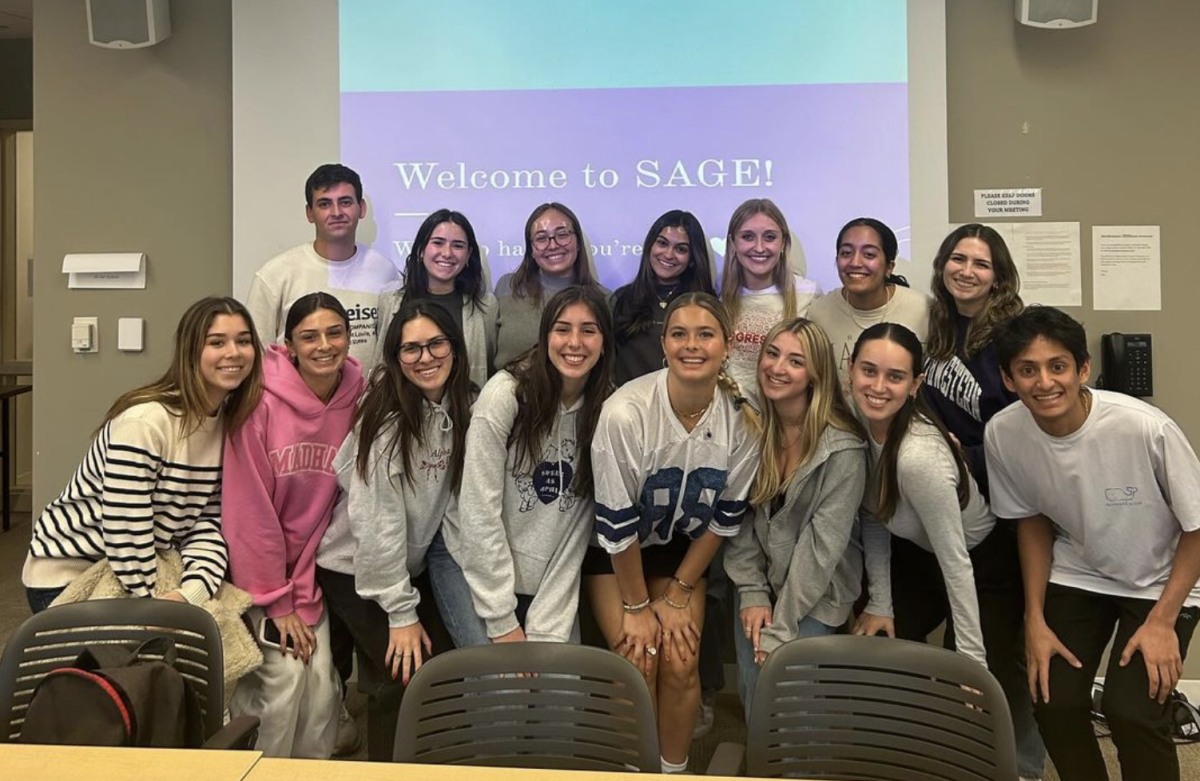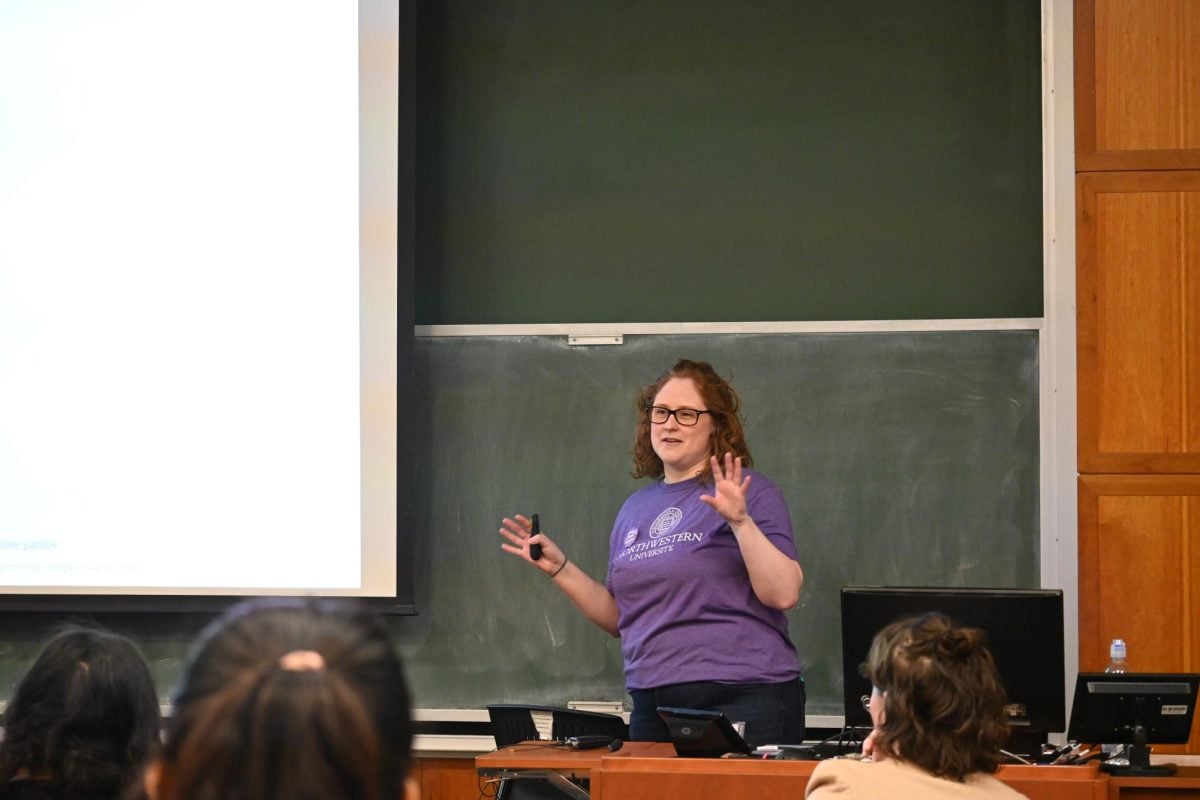A founding member of a green community in Israel spoke to Northwestern students Wednesday about his commitment to promoting sustainability and ecotourism.
Alex Cicelsky, who lives in Kibbutz Lotan in Israel, addressed about 20 students in University Hall, focusing on his community’s transformation into a “real oasis.” Before the creation of the kibbutz in Israel, the land was undeveloped and deserted, he said. Now, it features 60 homes, a college campus and a bird-watching center, all built with green technology.
“With the building of the kibbutz, we are fulfilling the dream of making the world bloom,” Cicelsky said.
Today, 200 people live within the collective community and have made the green kibbutz grow. Kibbutz Lotan, he said, is best known for constructing the first recycling center in Israel.
He said the kibbutz offers courses in composting and the use of recycled garbage and mud in the construction of houses and buildings. The main course in green technology lasts six weeks and is organized annually.
Cicelsky calls the objective of the project “Ecology in a Jewish Community Setting.” He said although most volunteers are part of the Jewish community, he encourages non-Jewish individuals to get involved with the kibbutz. He said people of all ages can volunteer there and learn about the green methods that are applied in construction and ecotourism.
Medill junior Samm Rosenblum organized the event and said it was very important in “demonstrating this special aspect of Israel.” She added that most people do not know about green communities or the role of a kibbutz in Israel.
Rosenblum, an Israel education intern for Hillel, said she views the event as an opportunity for all kinds of students to learn about the different actions communities in Israel are taking to make the world a greener place. Members of green-focused student groups such as SEED, ECO and Wild Roots worked with Rosenblum to organize the talk.
Rosenblum organized this event, she said, partly because of her personal interest in Kibbutz Lotan. She said she visited it while she was traveling in Israel and found it to be an interesting and “unique” community.
SESP senior Jennie van den Boogaard, one of the event attendees, said the talk had both local and national importance.
“So little of what these candidates talk about is the environment,” she said, referring to the November presidential election.
Boogaard said she hopes that projects like those done by the kibbutz will spur actions that expand green methods across the world, adding that NU students have a responsibility to promote sustainability on campus. She said it is everyone’s role to get involved with green methods and apply these techniques daily.
“As a citizen of this country and of this world, we all need to start thinking in more sustainable terms,” she said.

